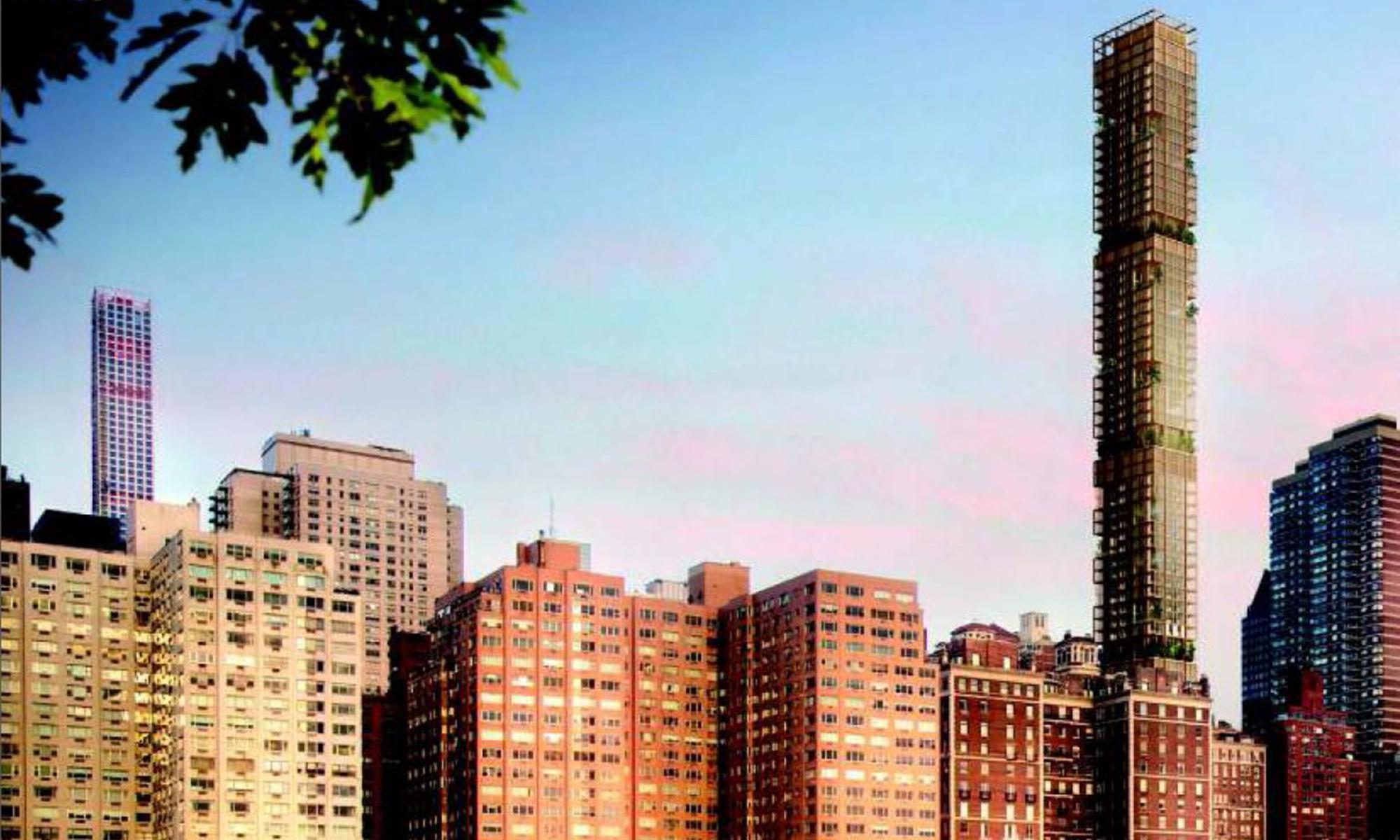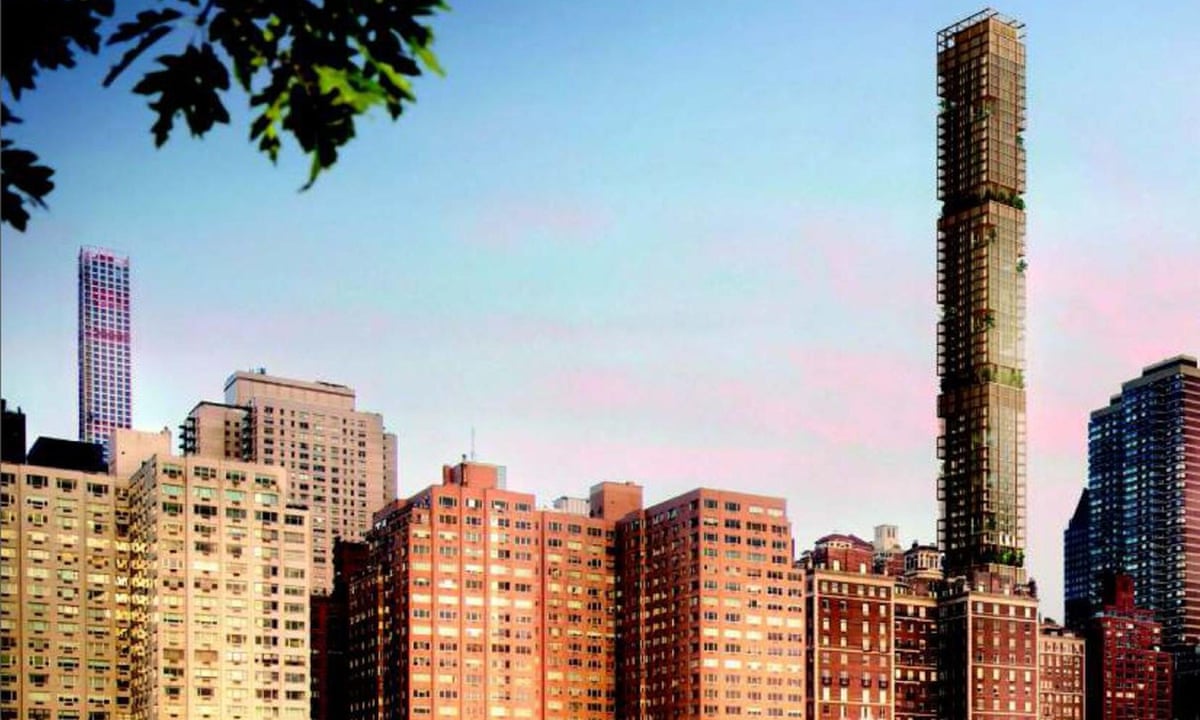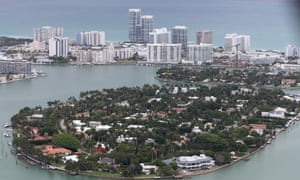Cooling luxury property market may get icier thanks to ‘dirty money’ crackdown
 There are warning signs that the luxury property market is coming down from a high, and calls for greater transparency of ownership may topple it further
There are warning signs that the luxury property market is coming down from a high, and calls for greater transparency of ownership may topple it further

From New York to London, the air seems to be getting a little thinner at the dizzy heights of the property market.
The collapse of a 78-story shadow-maker condo development in an exclusive enclave of the Upper East Side of Manhattan is sending shockwaves through the citys real estate market. And in London the decision to hold back the sale of apartments in the landmark Battersea power station development has also rattled already nervous buyers, sellers and developers.
Years of high-priced deals fueled by an international jetset with seemingly limitless supplies of cash appear to be coming to an end amid a crackdown on murky foreign ownership and property investments that could freeze an already cooling market.
The planned, Norman Foster-designed 900ft (275-meter) tower on Sutton Place, Manhattan, landed in Chapter 11 bankruptcy court earlier this month after its developers failed to refinance short-term loans on the project.
A blizzard of recriminations have followed, with the projects Bauhouse Group chief Joseph Beninati developer accusing lender Richard Kalikow of pulling out of the project in order to seize control. Behind them are larger shadows, warnings that the projects failure signals global economic turbulence and the impact increased scrutiny is having on international buyers, the mainstay of high-end buyers in New York, Miami and Los Angeles and around the world.
In London, the Battersea Power Station Development company held back some of its Frank Gehry- and Foster + Partners-designed apartments after its CEO confessed the market had become quite challenging.

Warnings that the luxury market is off its highs are multiplying. A recent survey found there are more than 300 new ultra high-end apartments under development in the vicinity of Sutton Place alone. Yet the number of Manhattan properties selling for $4m or more fell to its lowest level in four years in the first three months of the year.
Real estate agents say Bauhouses comparative lack of experience and local opposition contributed to the projects defeat. The failure of that project is to do with the zoning choices they made, says New York real estate agent Paula del Nunzio. Were seeing a fluctuation for sure. But when all those contracts close if the buyers chose to go through them, the market will have an uptick.
Dirty money crackdown
But the larger question of whether well-publicized crackdowns on dirty money ownership through shell companies announced last year by the Department of the Treasury, or calls for more information about offshore accounts after the Panama Papers, could exacerbate the situation.
In recent years mysterious, anonymous home buyers have snapped up real estate in all of the worlds top property markets in growing numbers. And the US authorities are worried that high-priced apartments are being used to launder illicit gains.
We are seeking to understand the risk that corrupt foreign officials, or transnational criminals, may be using premium US real estate to secretly invest millions in dirty money, said Jennifer Shasky Calvery, director of the Financial Crimes Enforcement Network (FinCEN), last year.
Under the new rules title insurance companies will be required to identify the natural persons behind shell companies used to pay cash for properties worth more than $3m (2m) in Manhattan and $1m in Miami-Dade County, the second largest area for foreign property investment.
Earlier this month, the Miami Herald uncovered a series of property deals, routed through offshore shell companies set up by Mossack Fonseca, the firm at the center of the Panama Papers controversy, that could be traced to foreign nationals accused of corruption.
Of the 19 foreign nationals creating offshore companies and buying Miami real estate, eight have been linked to corruption or fraud in their home countries. The Herald reported that many people coming to Olga Santini, a Miami representative for the Panama law firm Mossack Fonseca were Brazilian politicians, judges and politically connected businessmen.
Miamis financial institutions report more suspicious activity than any other major US city besides New York City and Los Angeles, according to Treasury Departments FinCen data.
South Florida, the Herald concluded, is a hub of the worlds shadow economy where lack of controls on real-estate deals as made Miami a magnet for questionable currency.
The paper also reported how The Miami Association of Realtors hosted an event called How to avoid the Treasury trap, a reference to new federal anti-money laundering rules.
The crack cocaine of real estate
Projects in Miami and New York have also benefitted from the EB-5 visa program the crack cocaine of real estate, according to one Manhattan broker that puts foreign nationals on a path to US citizenship if they invest between $500,000 to $1m in a US project.

There are more than 17,000 pending EB-5 immigration applications. The lengthy application process has created a ready business for banks, including Citibank and Signature Bank, offering developers bridging loans.
According to marketing documents obtained by the business blog the Real Deal, one of the largest EB-5 brokers in the US, NES Financial, based in San Jose, estimates that $2bn to $3bn in EB-5 capital is raised in the US annually. Over the past five years, the companys EB-5 business grew 71%. Most of its 450 projects are in New York and California.
EB-5 funded projects include a Trump skyscraper in Jersey City, New Jersey, developed by the presidential candidates son-in-law Jared Kushner. The project, reports Bloomberg, is being partially funded by 100 Chinese investors through US Immigration Funds, company that solicits foreign investors interested in investment visas.
But the investor green card program, popular with Chinese investors, could become harder to enroll in if plans to increase the amount required to as much as $1.2m to be approved.
In recent testimony, Nicholas Colucci, chief of the Immigrant Investor Program Office for United States Citizenship and Immigration Services, said $8.7bn had been invested in the US economy through the EB-5 program since March 2012 and created an estimated 35,140 jobs.
Real estate agents say the original purpose to invest in underfunded areas including a failed $60m meat-packing plant in South Dakota have been ignored. Instead, EB-5 investment has been traced to real estate on Central Park South or the Design District in Miami where large swathes were developed in partnership with the French luxury giant LVMH.
Last year, Fortune magazines Peter Elkind noted that because the EB-5 industry is virtually unregulated, it has become a magnet for amateurs, pipe-dreamers, and charlatans, who see it as an easy way to score funding for ventures that banks would never touch. Because wealthy foreigners are the main potential victims, he continued, US authorities have seemed inattentive to abuses.
EB-5 projects periodically end up in court. In 2013, the SEC charged Chicago EB-5 promoter Anshoo Sethi for allegedly swindling 250 Chinese investors for more than $145m supposed to go toward a hotel and conference center. In another case, a New York based lawyer, Hui Feng, who was accused of pocketing $1.2m in commissions.
The net result of EB-5 investment, warns one real estate agent, has been to boost real estate values to the point that it is only affordable to institutional investors and pension funds. Theyre the only people buying and this is going to blow up our economy again. For this and other reasons, failure of the Sutton Place shadow-maker may be a harbinger of things to come.